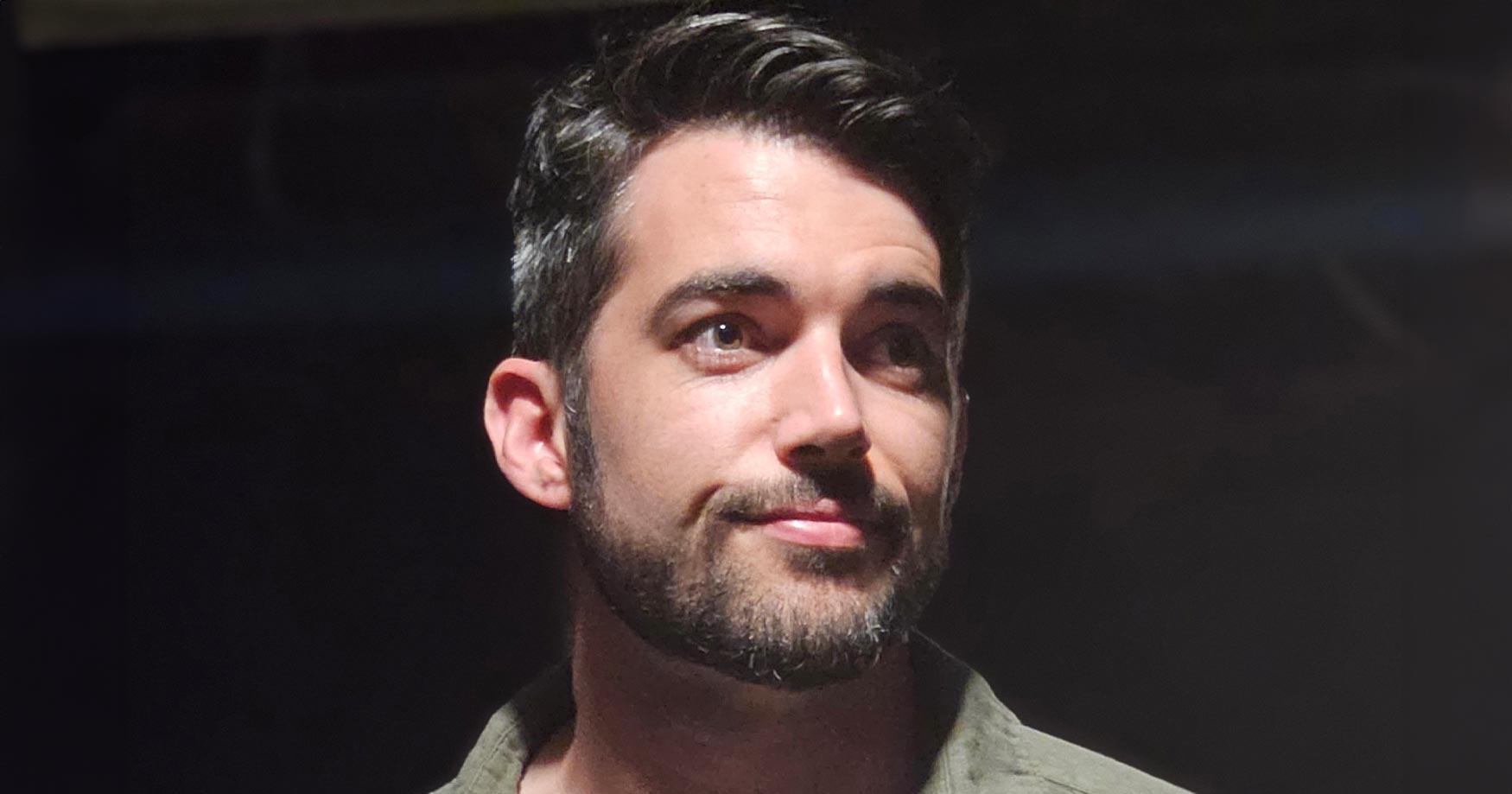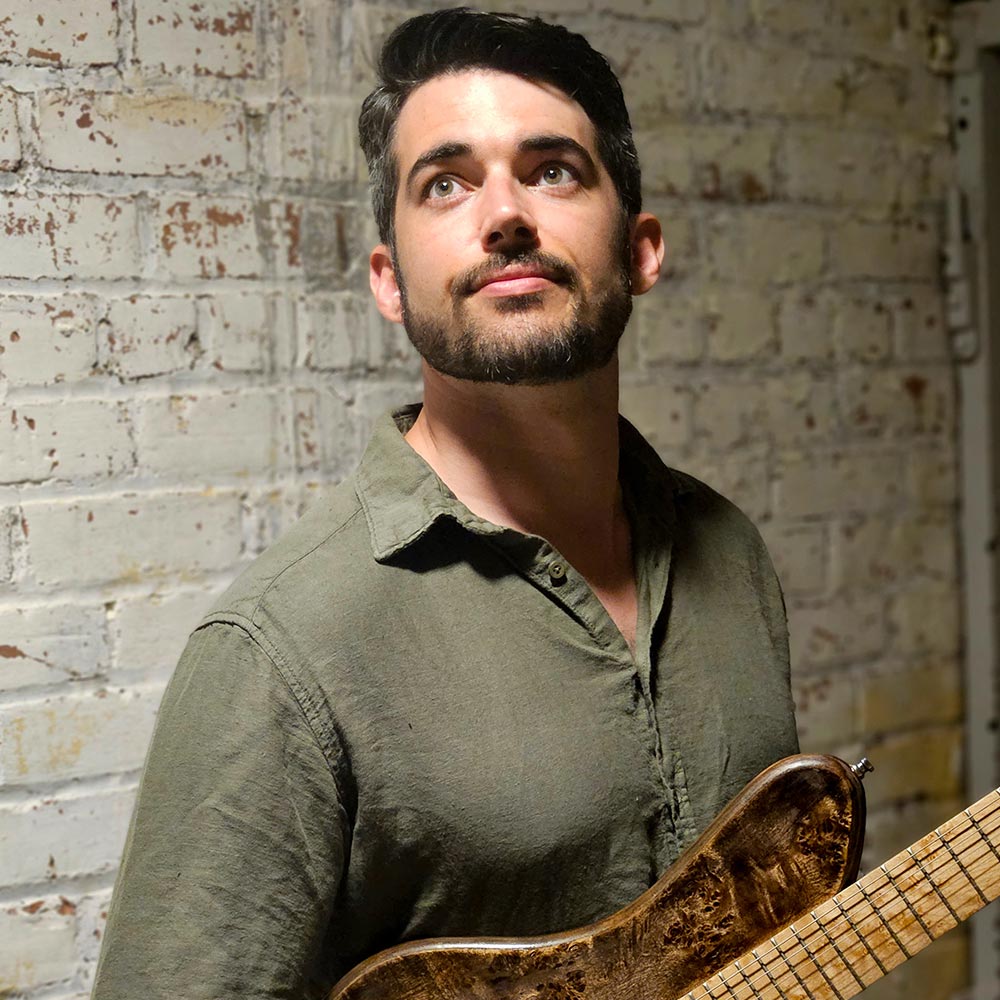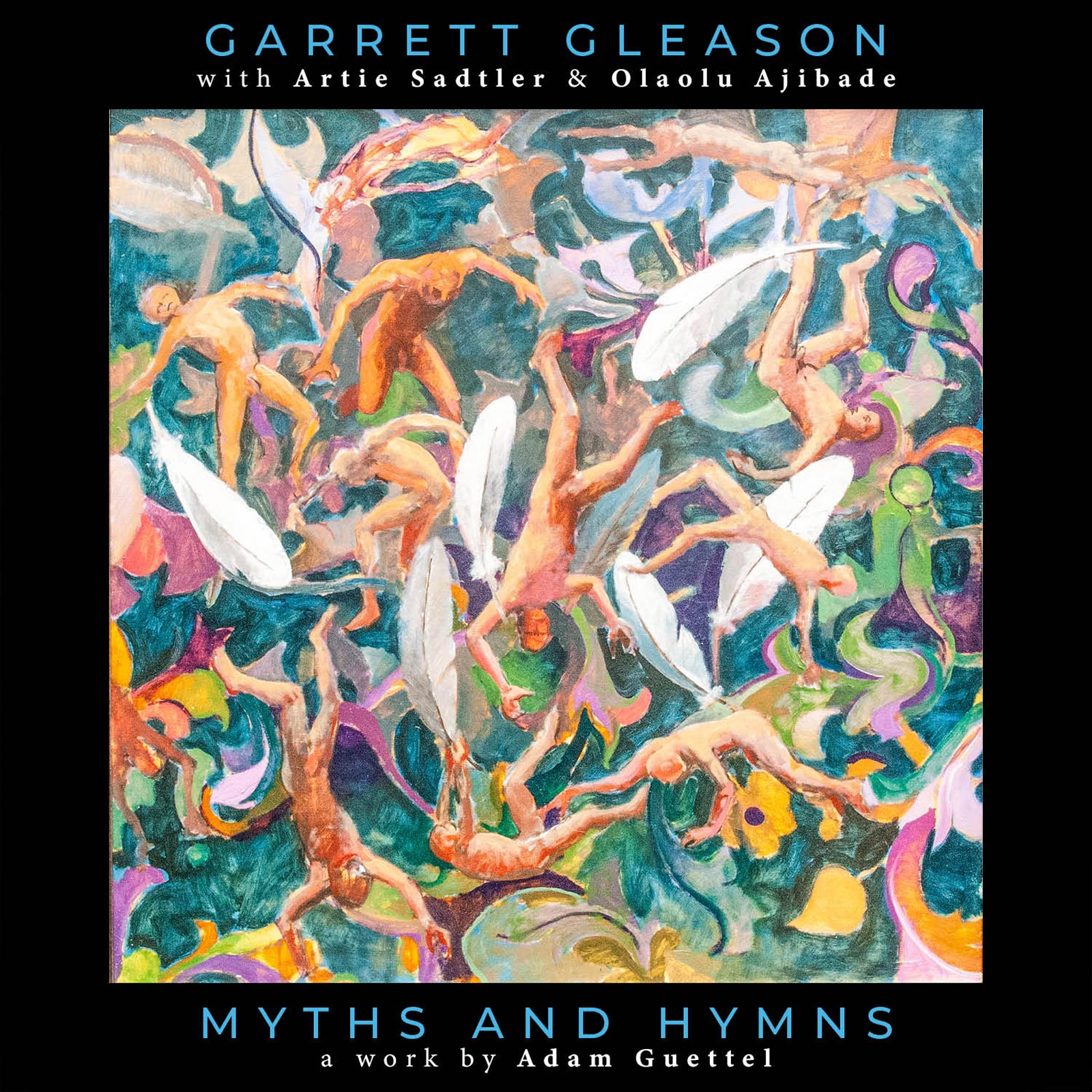
Adam Guettel’s theater cult-classic MYTHS AND HYMNS is no stranger to genre-bending and reimagination, the original song cycle itself leaning heavily on the concepts. So it comes as no surprise that renowned guitarist Garrett Gleason, never shying away from the new or imaginative, would produce his own reworkings of the beloved songs for guitar, bass, and drums.
Today, Garrett is our featured artist in “The Inside Story,” a blog series exploring the inner workings and personalities of our composers and performers. Read on to learn his formula to combating stage fright and why he loves to improvise with drummers…
If you could collaborate with anyone, who would it be?
Although much of my writing inspiration comes from horn players, guitarists, or effects gurus, I love improvising with drummers. I have a recording process involving this that I use frequently and that I continue to be inspired by: improvise with a drummer with as much isolation as possible in the tracks, and then compose with the tracks adding whatever I please. So, I would like to collaborate in this way with drummers I admire — Eric Harland, Elliot Hoffman, and Chris Dave, to name a few — and then soak up compositional and textural ideas from whatever music is currently inspiring me.
What advice would you give to your younger self if given the chance?
The worst reaction people will have to your art is indifference. You’re already okay with that reaction, so compose as much as possible without fear, and learn all the production and performance techniques that inspire you and help you achieve your goals.
Take us on a walk through your musical library. What record gets the most plays? Are there any “deep cuts” that you particularly enjoy?
Mahavishnu Orchestra’s “Inner Mounting Flame,” Dillinger Escape Plan’s “Miss Machine,” Radiohead’s “Kid A,” and Weather Report’s “Black Market.”
I could go on for an hour, but to save you that experience: sift through classic fusion from the 70s, progressive metal and hardcore of the early 00s, and then effects gurus who make beautiful and often melancholic music. Deep cut/honorable mention: Wayne Krantz’s “Greenwich Mean.”
What emotions do you hope listeners will experience after hearing your work?
Any emotions are encouraged so long as they’re strong. This may be a cop-out answer, but I genuinely mean it. A brutally honest song with minimal instruments and an onslaught of double bass and overdriven guitars can give me the same euphoric feeling of “holy smokes, someone did that, and I am moved” (it typically comes out as a slack-jawed “woah”). Similarly, I tend to get a cocktail of different emotions from impactful songs regardless of the genre or subject. I can’t control what people feel, as that’s tied to their life experience, so if my music creates strong feelings of any sort in the listener, then I’ve done my best job.
How have your influences changed as you grow as a musician?
The more styles of music I play, the wider my perspective becomes. I’ve been lucky to play a lot of different styles of music in live situations. Doing this has forced me to learn idioms that I wouldn’t think to practice and embrace music that I wouldn’t choose to listen to. Moreover, my feelings on different music changes when I’m feeding the music to an audience that truly enjoys it. It becomes a mutually beneficial exchange where they get what they came for and I get lessons on what “works” for an audience in that style. These situations have broadened my understanding of the value of those genres to me as a player, and it continually presents me with the fact that I can’t possibly know all of what music has to offer.
What musical mentor had the greatest impact on your artistic journey? Is there any wisdom they’ve imparted onto you that still resonates today?
Jon Damian. I attended Berklee’s Guitar Sessions program for 4 summers in a row, and in my final summer there he taught a Fretboard Harmony class to me and a small batch of jazz players for 5 days, 1 hour each day. He got us all looking at the fretboard and notes within scales in radical ways, and my understanding of what a chord could be widened immensely from those classes. However, the biggest nugget I got from my time with him was a broad saying he applied to music: “Performance = Potential – Fear.” In other words, how well you do equates to how your preparation is affected by what freaks you out in your head. I unpacked this saying into my practice and found that my potential and my fear can be addressed separately. Provided that I deeply prepare for performances of material required of me, doing things ranging from improvising in front of people to talking with new people help me acknowledge and ignore the feelings in my mind that may elicit a physical response when trying to perform. I doubt Jon remembers me, but I owe a great deal of my musical confidence to him.

Garrett Gleason is an American guitarist and composer. As a bandleader and composer, Gleason has released 13 studio albums through American labels TAR and Akar Music as well as independently through Head Cannon Records. Gleason writes music that embraces ethereal textures, harmonic exploration, off-kilter improvisation, and often aggressive energy. His releases are frequently collaborative; regarding their duo guitar record titled Duets, classical guitarist Sanjay Mishra of Jerry Garcia fame noted, “when I first heard Garrett I knew I was hearing something special. The rest just flowed naturally” (2020).

